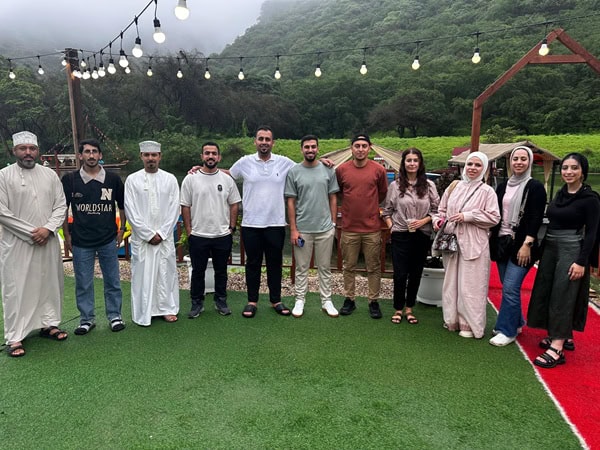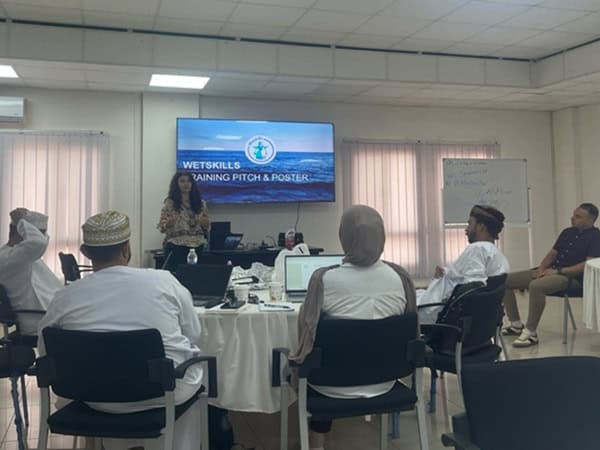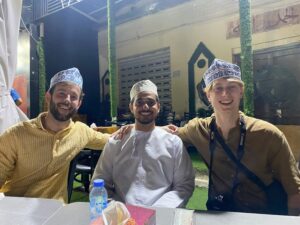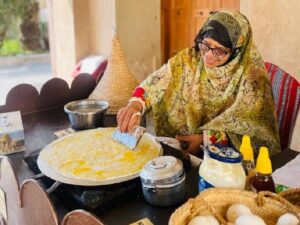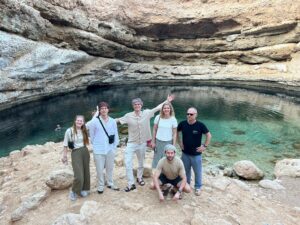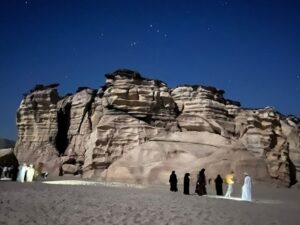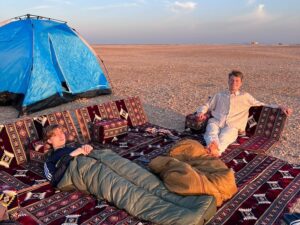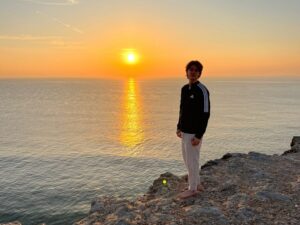
- This event has passed.
Wetskills-Oman 2025


6th Wetskills in Oman: for the first time in Salalah (south Oman)!
Because of the great successes of previous Wetskills Challenges in Oman (5 events since 2012 up to 2024) we are thrilled to organize the sixth event. And for the first time in the green part of Oman: Salalah! When the temperatures are high in Muscat, this southern region is a great place to visit in August!
We got 4 cases from Omani partners and had 19 participants on board. The Wetskills Finals and Awarding Ceremony were held on 10 September. This was a unique chance to present our solutions for a water smart society and engage with others. Follow us in this event!

Watch the compilation movie of this event!
Event info

Follow Wetskills

Joining this Wetskills Event – What do you get?

A unique learning experience where you will tackle real-life water challenges with your own team!
- You will increase your skills in: international cooperation; problem solving, cross-cultural and interdisciplinary teamwork, networking and presenting (pitch & poster);
- You will get the opportunity to connect with other international water students/young professionals;
- You will exclusively visit the Wetskills finals and awarding workshop at the Arab Youth Forum;
- You will visit Salalah and surroundings: water-related, natural and cultural sites, and meetings with water experts;
- You will learn, network and experience more about international and regional water challenges, the main stakeholders and organizations, contemporary issues and current business opportunities;
- You will receive a certificate of participation upon completion of the program.
More information
Contact: Loay Alatrash, loay.alatrash@wetskills.com, Ahmed Al-Busaidi, ahmed99@squ.edu.om, or Johan Oost, johan.oost@wetskills.com.
Finals and Awarding Ceremony





Event Blogs

Free day with sightseeing, and bonding with the team
Inspiring visit to the University of Technology and Applied Sciences
Event Cases

Case 1: Challenges with Rainwater, Wadi, and Waterfall Harvesting
Case owner: MEDRC (Oman)
Seasonal rainfall during Salalah’s Khareef creates abundant water through wadis and waterfalls, yet most of it flows unused to the sea. This lost opportunity is significant, as capturing Khareef rainwater could reduce reliance on overdrawn groundwater and costly desalination. As millions of cubic meters are wasted annually, issues like flooding, groundwater depletion, and rising salinity are intensifying. Climate changes is also leading to more intense rainfall during the Khareef and unpredictable weather patterns throguhout the year. There is an urgent need for integrated, scalable, holistic and sustainable approaches to rainfall harvesting, in the region and across Oman, to tap this resource and address water security challenges.
Case 2: Monitoring water quality in distribution networks using AI
Case owner: Nama Water (Muscat)
Ensuring safe drinking water is a growing challenge as treated water travels through vast and aging distribution networks. This case focuses on innovative strategies to monitor and maintain water quality across Oman’s water supply systems. Participants will explore how real-time sensors, smart monitoring tools, and AI-based analytics can improve water safety, detect contamination risks early, and support faster response actions. The case also addresses practical constraints such as infrastructure limitations, budget, and workforce capacity. Participants will develop integrated, scalable solutions to help utilities maintain high-quality water from source to tap.
Case 3: Strategic review of atmospheric water harvesting technologies
Case owner: MEDRC
Oman, characterized by arid and semi-arid climatic conditions, faces persistent challenges related to freshwater scarcity. Despite limited rainfall and high evaporation rates, many regions—particularly along the coastal areas—experience relatively high humidity levels, especially during the summer months. This atmospheric moisture presents a largely untapped opportunity for sustainable water generation through Atmospheric Water Harvesting (AWH) technologies. By leveraging Oman’s unique climatic profile, particularly in humid zones such as Dhofar and the Al Batinah coast, AWH systems offer a promising supplementary water source that can support water security, especially in remote or water-stressed communities.
Case 4: Solving Persistent Sulphide Contamination in Drinking Water
Case owner: Nama Dhofar
Supplying safe and clean drinking water is one of the most pressing challenges in Salalah, where groundwater and desalination plants form a vital part of the city’s water system. Nama Dhofar brings forward a key issue for innovation: the persistent presence of hydrogen sulphide (H₂S) in raw water. Despite reverse osmosis (RO) treatment, residual sulphide levels remain around 0.8 mg/L, leading to a “rotten egg” odor and repeated non-compliance with drinking water standards. How can Nama Dhofar rethink and improve RO technology or propose alternative treatment steps that can fully eliminate H₂S, ensuring odor-free, safe, and reliable drinking water for the community?
Event Partners

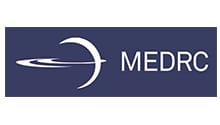

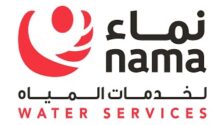

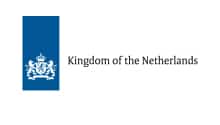
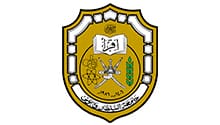


Previous Events in Oman


